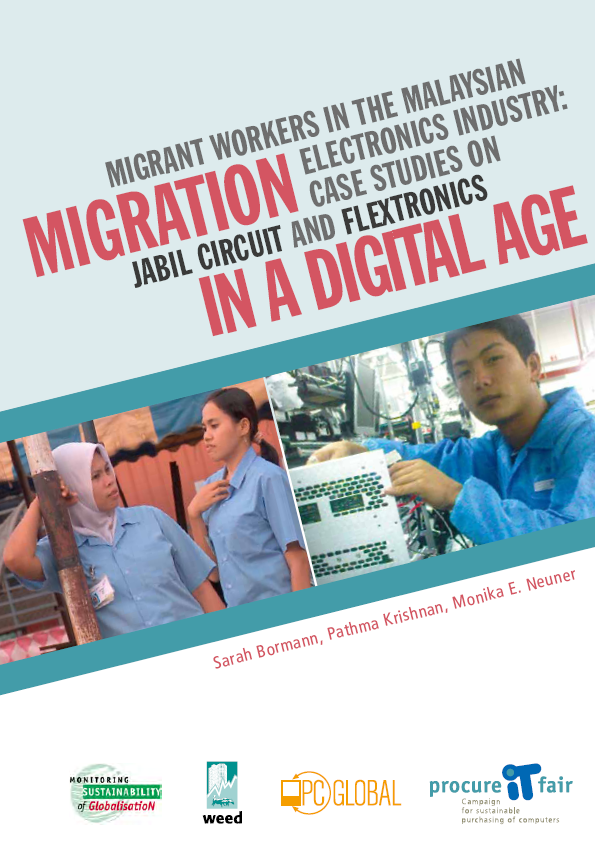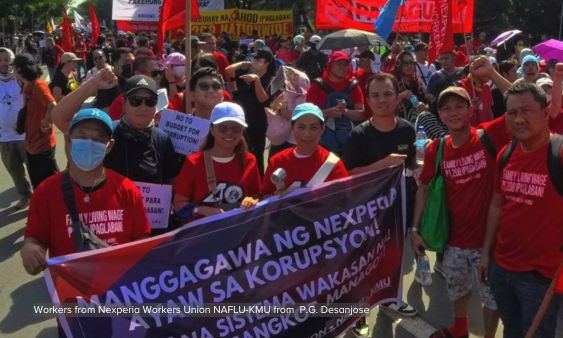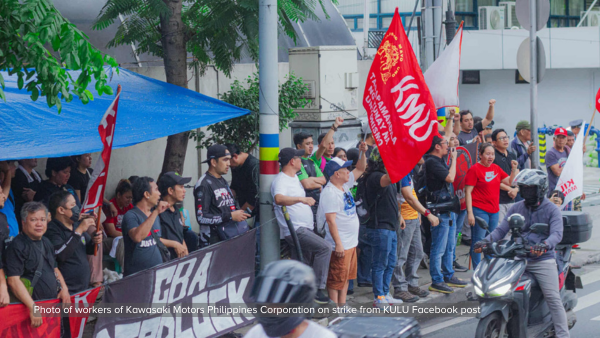Migrant Workers in the Malaysian Electronics Industry: Case Studies on Jabil Circuit and Flextronics
Malaysia is one of the ten largest exporters of Information and Communication Technology (ICT) products in the world. The following two case studies of Flextronics and Jabil Circuit illustrate the working and living conditions of migrant employees.
Malaysia is one of the ten largest exporters of Information and Communication Technology
(ICT) products in the world. The industry is fuelled by low wages, overtime work, and the rejection of trade union rights. Since industry players face difficulties hiring workers from Malaysia under these conditions, companies are increasingly turning to migrant workers from Indonesia, Bangladesh, Nepal, Vietnam, and Myanmar. Employment agencies and temporary work agencies play a key role in this process. Today, Malaysia is the main destination for migrant workers in Southeast Asia.
Very few of these workers are members of Malaysian trade unions, neither in the electronics industry nor in other sectors. In general, unionism in the electronics industry is very low in the country. Until 2009 the government permitted for a large section of the industry, including the Contract Manufacturers, only the formation of in-house unions. After almost forty years of struggle, the government legalized the formation of an industrial trade union in the electronics – but only on a regional level. Although trade unions gained experience organising young, Muslim women from rural areas in the 1970s and 1980s, organising contemporary migrant workers is a new challenge for them.
The following two case studies of Flextronics and Jabil Circuit illustrate the working and living conditions of migrant employees. The studies reveal systematic violations of national and international laws, including the freedom of association for employees, one of the International Labour Organisation (ILO) core labour standards. The core labour standards are recognised as fundamental human rights and are therefore universally applicable.
The paper is divided into two sections: The introductory section contains a brief background of Malaysia’s electronics industry, its working conditions and the state of trade unions. The second section focuses primarily on the extensive field research on migrant workers at the Contract Manufacturers Flextronics and Jabil Circuit producing for brand companies like Apple, Hewlett Packard and Dell, carried out by Pathma Krishnan from Monitoring Sustainability of Globalisation (MSN).










